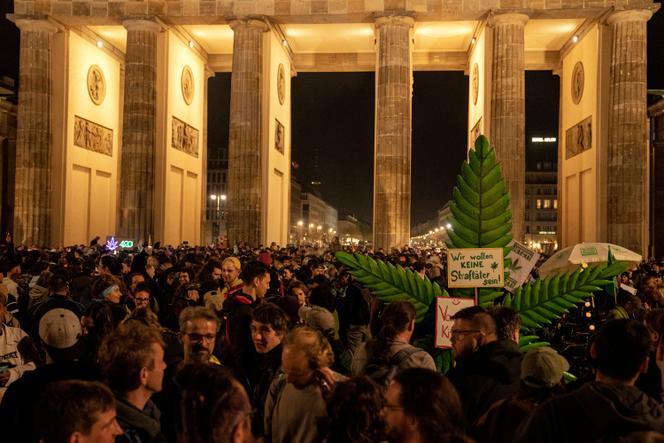


If it's too early to say whether Germany's new law on the "controlled use of cannabis" will be a success or a failure, one thing is clear: The new legislation, which came into force on April 1, has been introduced amid such confusion that it's hard to see how the government's stated objectives can be achieved, at least in the short term.
Among these objectives is the eradication of the black market. Originally, the coalition led by Chancellor Olaf Scholz planned to authorize the sale of cannabis in licensed stores. However, Berlin was forced to abandon this plan, as it proved incompatible with European law. Instead of being able to buy cannabis from stores on the street, consumers now have two options: grow their own at home, up to a limit of three plants per person, or join a growers' association, through which they can receive up to 30 grams per month if they are aged between 18 and 21, and up to 50 grams if they are older.
However, these growers' associations do not yet exist. By law, they will not be able to start operating before July 1 – and to do so, they must first obtain a license. However, some Länder are putting up resistance, such as Bavaria, whose very conservative Minister-President Markus Söder, believes that "legalizing cannabis is a fatal mistake."
If the regional authorities don't play ball and instead decide to make it more difficult to set up these growers' associations, consumers who don't want to start growing cannabis will continue to buy from their usual dealers. For small-time dealers, the new legislation provides a certain advantage, in that it is now legal to carry 25 grams of cannabis on your person.
Another of the government's stated aims is to lighten the workload of police officers and judges. With decades of prohibition and repression having failed to reduce cannabis consumption – quite the opposite, in fact –, what's the point in continuing to ask them to apply a failed policy? The problem is that implementing the new law is already proving to be a real headache. It prohibits smoking cannabis near minors, within 100 meters of schools, sports facilities, and children's playgrounds, and in pedestrian zones between 7 am and 8 pm.
Contrary to what is claimed, legalization does not mean fewer rules, but more rules to enforce. So far, however, the authorities don't have the means to do this. Firstly, for legal reasons, because the division of powers between municipal and regional police forces in terms of control is unclear and is already the subject of disputes between the different levels in several regions.
You have 46.86% of this article left to read. The rest is for subscribers only.
